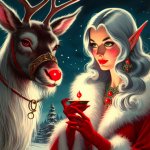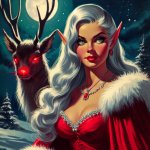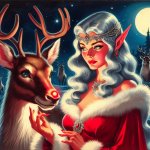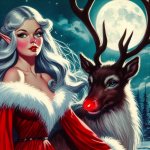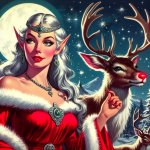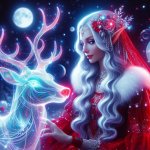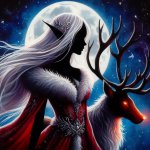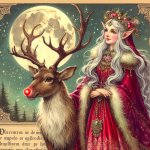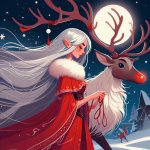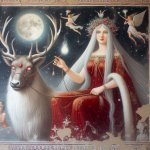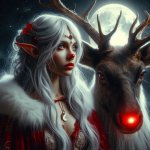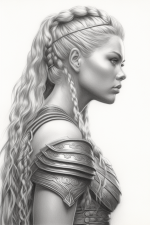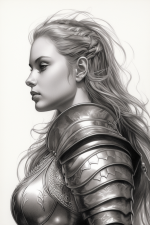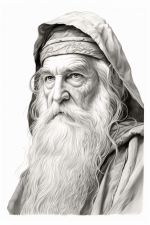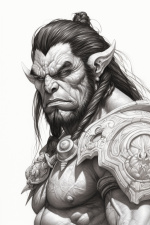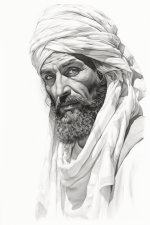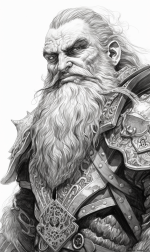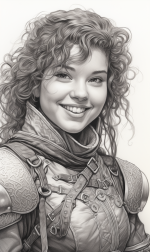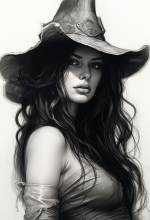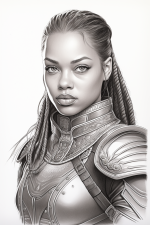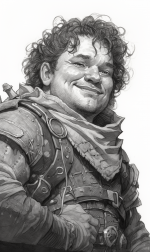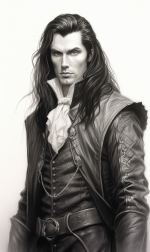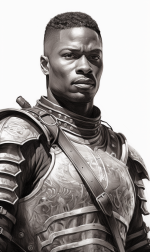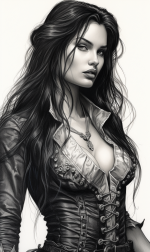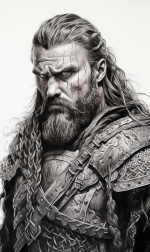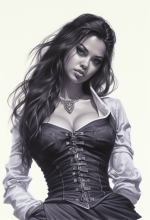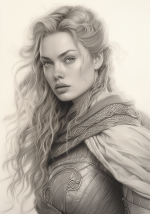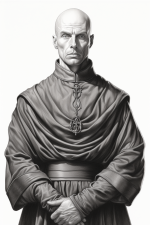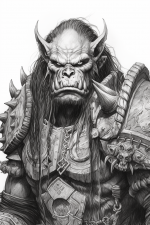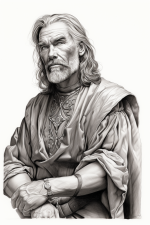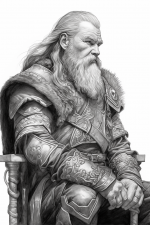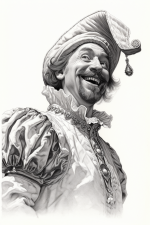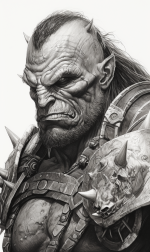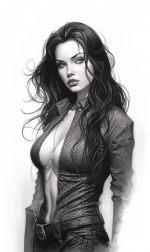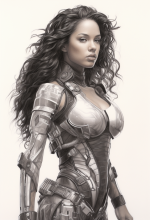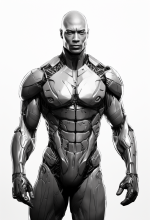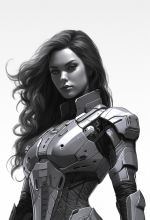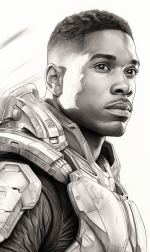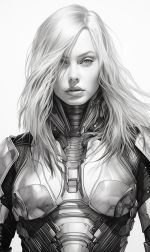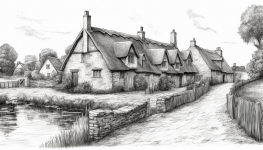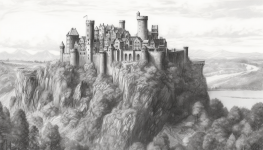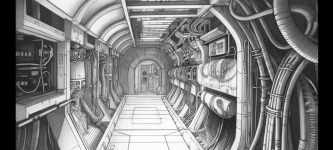You are using an out of date browser. It may not display this or other websites correctly.
You should upgrade or use an alternative browser.
You should upgrade or use an alternative browser.
D&D General AI Art for D&D: Experiments
- Thread starter M.T. Black
- Start date
J.Quondam
CR 1/8
Re: the next-to-last one...
Then one foggy Yuletide Day,
Moon Priestess came to say,
"Rudolf with your third eye so bright
Won't you peer into our souls tonight!"
Blue Orange
Gone to Texas
I'm enjoying the elves-as-greys idea. I feel like it gets the alienness of the original, pre-Tolkien concept across, and there have been UFOlogists linking the two.
Acolyt
Contrary to popular belief, Acolyts didn't always need to derive their powers from a god. After a night of heavy drinking, Ao once thought it would be cool to have philosophies grant spellcasting powers. After some time, he extended his all-knowing consciousness to see the result.

Petitonner: Please, Father Ford, heal our child!
Acolyt of neoliberalism: have you checked the running rates posted at the entrance of my miracle-factory? I have already spent two of my slots today, and the opportunity cost of spending the last is huge.
Petitionner: but, Father Ford, our family is poor, we've been devout and we hoped that we could get healing for free...
Acolyt of neoliberalism: you want to provide according to your means and get according to your needs?!? SMITE MARXISM!

Brother Carnot: I've been a priest of Thermodynamics for 15 years, their laws are core to my belief an existence...
Nobleman: we really need those wine vases fixed...
Brother Carnot: By the power vested into me by the strength of my belief, I'll reduce the entropy of this system. Mending!
Ao therefore decided it was a bad idea to change the core idea behind a class while drunk, sundered half of Faerun like he does every time he wants to do a minor change, and redacted that philosophy silliness in 5e.
Contrary to popular belief, Acolyts didn't always need to derive their powers from a god. After a night of heavy drinking, Ao once thought it would be cool to have philosophies grant spellcasting powers. After some time, he extended his all-knowing consciousness to see the result.
Petitonner: Please, Father Ford, heal our child!
Acolyt of neoliberalism: have you checked the running rates posted at the entrance of my miracle-factory? I have already spent two of my slots today, and the opportunity cost of spending the last is huge.
Petitionner: but, Father Ford, our family is poor, we've been devout and we hoped that we could get healing for free...
Acolyt of neoliberalism: you want to provide according to your means and get according to your needs?!? SMITE MARXISM!
Brother Carnot: I've been a priest of Thermodynamics for 15 years, their laws are core to my belief an existence...
Nobleman: we really need those wine vases fixed...
Brother Carnot: By the power vested into me by the strength of my belief, I'll reduce the entropy of this system. Mending!
Ao therefore decided it was a bad idea to change the core idea behind a class while drunk, sundered half of Faerun like he does every time he wants to do a minor change, and redacted that philosophy silliness in 5e.
Last edited:
Adult and ancient dragons (gold)
Contrary to popular belief, dragons don't tend to hoard treasure. Much like the Inca cities of Gold, it's a huge misunderstanding. The first gold dragon ever met did actually suffer from an advanced case of leprosy. The misunderstanding was only cleared at the beginning of the second industrial revolution.

Unfortunately, it led to the extinction of copper dragons, hunted down by power companies, a few years later.
Contrary to popular belief, dragons don't tend to hoard treasure. Much like the Inca cities of Gold, it's a huge misunderstanding. The first gold dragon ever met did actually suffer from an advanced case of leprosy. The misunderstanding was only cleared at the beginning of the second industrial revolution.
Unfortunately, it led to the extinction of copper dragons, hunted down by power companies, a few years later.
Last edited:
Prime_Evil
Adventurer
Given we have some images from Neuromancer, I'm posting some of my cyberpunk cityscapes....








Prime_Evil
Adventurer
Prime_Evil
Adventurer
Similar Threads
- Locked
- Replies
- 231
- Views
- 41K
- Locked
- Replies
- 505
- Views
- 85K
- Replies
- 140
- Views
- 36K
- Replies
- 43
- Views
- 10K
- Replies
- 119
- Views
- 18K
Enchanted Trinkets Complete
Recent & Upcoming Releases
-
December 9 2025 -
June 18 2026 -
October 1 2026


